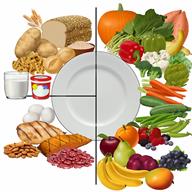Weakness: What to Know
Weakness means you feel like you don't have enough strength. You might feel weak all over your body or just in one part. Common causes of weakness include:
Infections that make your body fight hard.
Feeling very tired from too much activity.
Having anemia. This is when you don't have enough red blood cells.
Losing a lot of blood.
Dehydration. This is when there's not enough water in your body.
Low minerals in your body, like potassium.
Long-term (chronic) kidney or liver disease.
Cancer.
Other causes include:
Some medicines or cancer treatments.
Feeling worried, nervous, sad, or hopeless.
Having a stroke.
- Problems with:
Your heart.
Your nervous system.
Your thyroid.
Poor sleep or trouble sleeping.
Loss of muscle strength from getting older or not moving enough.
The cause of your weakness may not be known. Some causes can be serious, so be sure to talk with your health care provider if you feel weak.
Follow these instructions at home:
Activity
-
Rest as needed.
-
Get enough sleep. Most adults need 7–8 hours of good sleep each night. Talk to your provider about how much sleep is best for you.
-
Exercise for at least 30 minutes, 2 days a week. You can do things like arm curls and leg raises to help make your muscles stronger. Do exercises as told.
-
Think about working with a physical therapist or trainer. They can help make a workout plan for you.
General instructions

-
Take your medicines only as told.
- Eat a healthy diet. It should include:
Proteins like low-fat (lean) meats and fish. These help build muscles.
Fresh fruits and vegetables for vitamins.
Carbohydrates like whole grains. These help give you energy.
-
Drink more fluids as told.
-
Keep all follow-up visits. Your provider will check how you're doing. They'll change your treatments as needed.
Contact a health care provider if:
-
You feel weak all of a sudden, especially on one side of your face or body.
-
You have chest pain.
-
You feel short of breath.
- You have trouble:
Breathing.
Seeing.
Talking.
Swallowing.
Standing.
Walking.
-
You feel light-headed, or you faint.
These symptoms may be an emergency. Call 911 right away.
This information is not intended to replace advice given to you by your health care provider. Make sure you discuss any questions you have with your health care provider.
